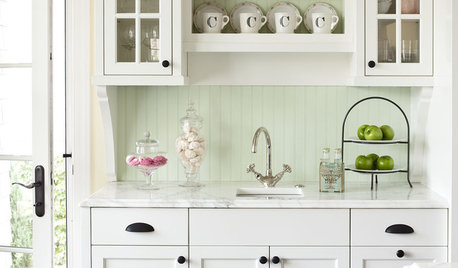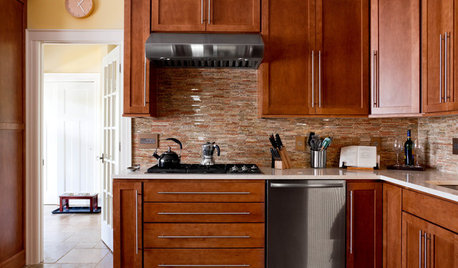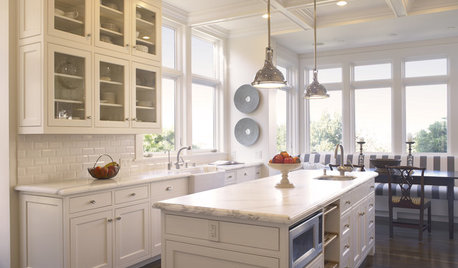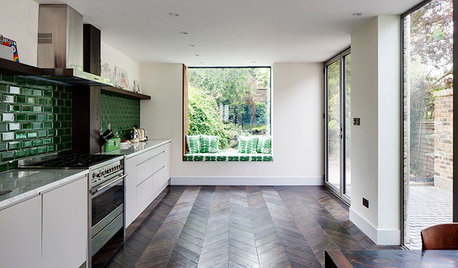Kitchen remodeling - First Roadblock!
MSeth
10 years ago
Related Stories

MOST POPULARBlast Decluttering Roadblocks Once and for All
Change your thinking to get the streamlined, organized home of your dreams
Full Story
MOST POPULARFirst Things First: How to Prioritize Home Projects
What to do when you’re contemplating home improvements after a move and you don't know where to begin
Full Story
KITCHEN DESIGNModernize Your Old Kitchen Without Remodeling
Keep the charm but lose the outdated feel, and gain functionality, with these tricks for helping your older kitchen fit modern times
Full Story
REMODELING GUIDESHow to Remodel Your Relationship While Remodeling Your Home
A new Houzz survey shows how couples cope with stress and make tough choices during building and decorating projects
Full Story
WORKING WITH PROSInside Houzz: No More Bumper Cars in This Remodeled Kitchen
More space, more storage, and the dogs can stretch out now too. A designer found on Houzz creates a couple's just-right kitchen
Full Story
KITCHEN DESIGNRemodeling Your Kitchen in Stages: Planning and Design
When doing a remodel in phases, being overprepared is key
Full Story
INSIDE HOUZZHouzz Survey: See the Latest Benchmarks on Remodeling Costs and More
The annual Houzz & Home survey reveals what you can expect to pay for a renovation project and how long it may take
Full Story
REMODELING GUIDES25 Most Bookmarked Remodeling Guides of 2012
Seems like Houzzers couldn't get enough advice on renovating basements, kitchens, showers and even laundry rooms this year
Full Story
REMODELING GUIDESConsidering a Fixer-Upper? 15 Questions to Ask First
Learn about the hidden costs and treasures of older homes to avoid budget surprises and accidentally tossing valuable features
Full Story
ADDITIONSLight and Personality Fill a Remodeled London Home
Eclectic and heritage elements mix in a clever extension that adds volume without digging into the home’s foundation
Full Story







live_wire_oak
lucas_tx_gw
Related Professionals
Moraga Kitchen & Bathroom Designers · Palmetto Estates Kitchen & Bathroom Designers · Hunters Creek Kitchen & Bathroom Remodelers · Morgan Hill Kitchen & Bathroom Remodelers · Richland Kitchen & Bathroom Remodelers · Santa Fe Kitchen & Bathroom Remodelers · Trenton Kitchen & Bathroom Remodelers · Avocado Heights Cabinets & Cabinetry · Brea Cabinets & Cabinetry · Manville Cabinets & Cabinetry · Palos Verdes Estates Cabinets & Cabinetry · Edwards Tile and Stone Contractors · Gladstone Tile and Stone Contractors · Niceville Tile and Stone Contractors · Roxbury Crossing Tile and Stone Contractorskai615
Vertise
rosylady
gwlolo
Cindy103d
GauchoGordo1993
Clarion